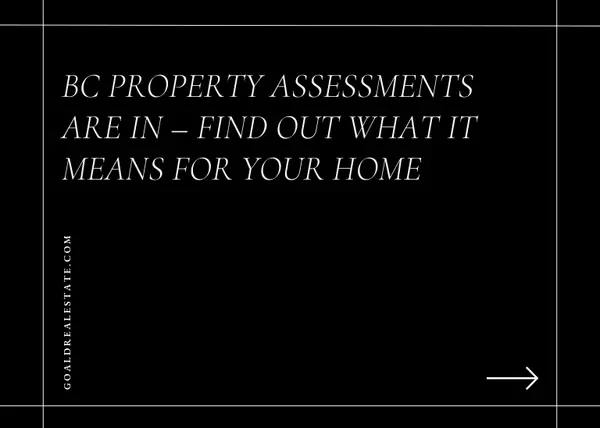

BC Government Ends Rental and Age Restrictions for Strata Properties
Today, the Government of B.C. announced changes to legislation that will remove rental restrictions in strata properties and introduced the new Housing Supply Act which will provide select municipalities with increased powers to address housing development. These changes will have implications for consumers, real estate licensees, and real estate developers in our province. Amendments to the Strata Property Act will end all strata rental-restriction bylaws and limit age-restriction bylaws so that the only permitted age restriction is to preserve and promote seniors’ housing through the “55 and over” rule in strata housing. Moving forward, it will not be permissible for a strata to have 19-plus age restrictions; however, “seniors only” strata will still be allowed. If approved, the changes to the Strata Property Act would take effect immediately. Bylaws restricting short-term rentals, such as AirBnB, will continue to be allowed. These actions are new steps to deliver homes in B.C., building on B.C.’s 10-year, $7-billion Homes for B.C. plan. Read the Office of the Premier Media Release Frequently Asked Questions BCFSA does not regulate the Strata Property Act (“SPA”) or provide legal advice. More information can be found on the B.C. Government and Condominium Home Owners Association (“CHOA”) websites. Strata housing website CHOA information webinar VISOA information webinar The information provided below is adapted from the Government of B.C.’s recent email via the Strata Housing website email subscription service and does not constitute BCFSA advice. Bill 44 changes Bill 44: Building and Strata Statutes Amendment Act, 2022 became law on November 24, 2022. It includes three major changes: (1) Rental restriction bylaws The bill removes the ability of strata corporations to have rental restriction bylaws. When will this change take effect? This change came into force immediately once the bill received Royal Assent. Existing rental restriction bylaws are now unenforceable. What about short-term rental bylaws? While strata corporations cannot restrict owners from renting out their units to tenants, strata corporations are still allowed to have bylaws restricting licences to occupy (sometimes referred to as “short-term accommodation,” such as AirBnB). (2) Age restriction bylaws The bill limits the ability of strata corporations to have age restriction bylaws. Age restriction bylaws with a minimum age of 55 years of age or older are still permitted, subject to an exemption for live-in caregivers. When will this change take effect? This change came into force immediately once the bill received Royal Assent. Existing age restriction bylaws with a minimum age of less than 55 are now unenforceable. (3) Electronic meetings The bill made changes to allow strata corporations in British Columbia to conduct annual and special general meetings by telephone or other electronic means on a permanent basis, without the need for an explicit enabling bylaw. Hybrid meetings—with some participants attending in person and some electronically—are also permitted. The strata corporation will also have new procedural responsibilities related to these changes, including new notice requirements for annual and special general meetings. When will this change take effect? This change came into force immediately once the bill received Royal Assent but is subject to a four-month transition period. This means that strata corporations will have four months after the bill passed before they need to comply with the new requirements related to electronic meetings. Other updates The Residential Tenancy Branch (RTB) has updated “Policy Guideline 27: Jurisdiction” to confirm that, in specific situations, strata corporations may act as landlords for the purposes of: Issuing a notice to end tenancy; Appearing before the RTB to defend an eviction notice; and Seeking an order and writ of possession for repeated violations of significant strata bylaws. If you need legal advice Strata councils, owners, or residents that are unsure about how these changes may impact current strata bylaws or other legal rights and responsibilities should seek legal advice from a lawyer. Strata property managers and strata homeowner organizations will also have helpful information on implementing these changes.Article taken from www.bcfsa.com
Read More

Canada’s Foreign Buyer Ban Begins in January
Starting in January 2023, non-Canadians will be banned from buying homes across Canada, through the Prohibition on the Purchase of Residential Property by Non-Canadians Act. This Act prohibits non-citizens and non-permanent residents from purchasing residential property in Canada for two years. The federal government has still not released the supporting regulations for the foreign buyer ban. The regulations are expected to include definitions, exceptions, and enforcement elements to help REALTORS® and their clients understand and comply with the law. Below is a description of what we do know: The Act restricts non-Canadians from avoiding the ban by using corporations or other entities to purchase residential property. Both the non-Canadian purchaser of prohibited property and any person or entity that knowingly assists in the purchase can be fined up to $10,000 and the property may be forced to be sold. “Residential property” includes detached houses or similar buildings of one to three dwelling units, as well as parts of buildings such as semi-detached houses, strata units or other similar premises. How does the Foreign Buyer Ban Impact REALTORS®? REALTORS®, along with lawyers and notaries, owe their clients an obligation to inform. The legislation does not rely on REALTORS® to enforce the prohibition, however it does allow for penalties to be imposed on any party found guilty of knowingly assisting a non-Canadian in violating the prohibition. Exemptions At this point, there is still lots that we do not know about the Act, because details have not been announced through regulation. There may be exemptions for certain groups of people, types of residential property and special circumstances, but these have not yet been established. Also, it is still unclear what is meant by “control” and what is considered “purchase” within the Act. The final regulations are intended to be published later this fall. Although it is uncertain, we anticipate exemptions will be put in place for: recreational properties, residential property located outside of a large urban centre, vacant land where the land has been zoned for residential use or mixed use by municipal authorities within large urban centres, Indigenous peoples, international students on the path to permanent residency, individuals with work permits residing in Canada, individuals fleeing international crises and other vulnerable populations, and accredited members of foreign missions in Canada. Advocacy BCREA is concerned that this policy will create obstacles for homeownership for newcomers and can interfere with Canada’s ability to attract immigrants. The policy is at odds with the federal government’s own immigration targets, as the aim to welcome 465,000 next year. Even if a person is not a Canadian resident, they are still able to contribute to Canada’s economy and communities. BCREA supports the Canadian Real Estate Association’s (CREA) advocacy for additional exemptions, including: Americans and Mexicans through the Canada-United States-Mexico Agreement. This exemption would avoid a reciprocal response from Canada’s trading partners that could harm Canadians. A US Congressman has already warned that if Canada were to target foreign owners of real property in the United States, there may be reciprocal policies implemented. areas where existing measures are in place. This would include the many areas in BC that are subject to the Speculation and Vacancy Tax, whereby non-Canadians are subject to an additional 20 per cent property transfer tax in specified areas, and established dwellings for redevelopment, provided they increase housing stock. CREA also asked that the federal government take into consideration the compliance burden of implementation and the recognition that housing needs vary across the country. CREA’s full consultation submission can be found here.Posted byMatt MayersSenior Policy Analystwww.bcrea.bc.ca
Read More

Helping Homeowners and Buyers Navigate New Federal Tax Changes
The federal government is introducing new tax changes that may impact homeowners and potential homebuyers beginning January 1, 2023. Here's what you need to know. Multigenerational Home Renovation Tax CreditThis tax credit for families applies to eligible construction costs for those who wish to add a secondary unit to their home to allow an immediate or extended family member to live with them. To be eligible, the renovation must be completed in the owner’s primary residence where they live with a senior or disabled person. The tax credit covers 15 per cent of costs to a maximum of $7,500. Eligible expenses would include the cost of labour, building materials, equipment rentals and permits. Non-eligible expense examples include furniture, construction and equipment tools, routine repair or maintenance costs, household appliances and devices and landscaping or security services. Expenses must be supported by receipts. Residential Property Flipping RuleIndividuals who purchase a residential property and sell it within 12 months of their purchase may be subject to the Residential Anti-Flipping Rule. Under the new rules, any profit from the sale of residential real estate (including rental property) within a year would be taxed as business income and ineligible for either the 50 per cent capital gains rate or the principal residence exemption. Exemptions include: household addition, such as birth, adoption, or care of an elderly parent, breakdown of a marriage or common-law partnership, threat to personal safety, such as domestic violence, change in employment, insolvency, or involuntary disposition, such as from a natural or human-caused disaster. Posted byMatt MayersSenior Policy Analystwww.bcrea.bc.ca
Read More
Categories
Recent Posts










